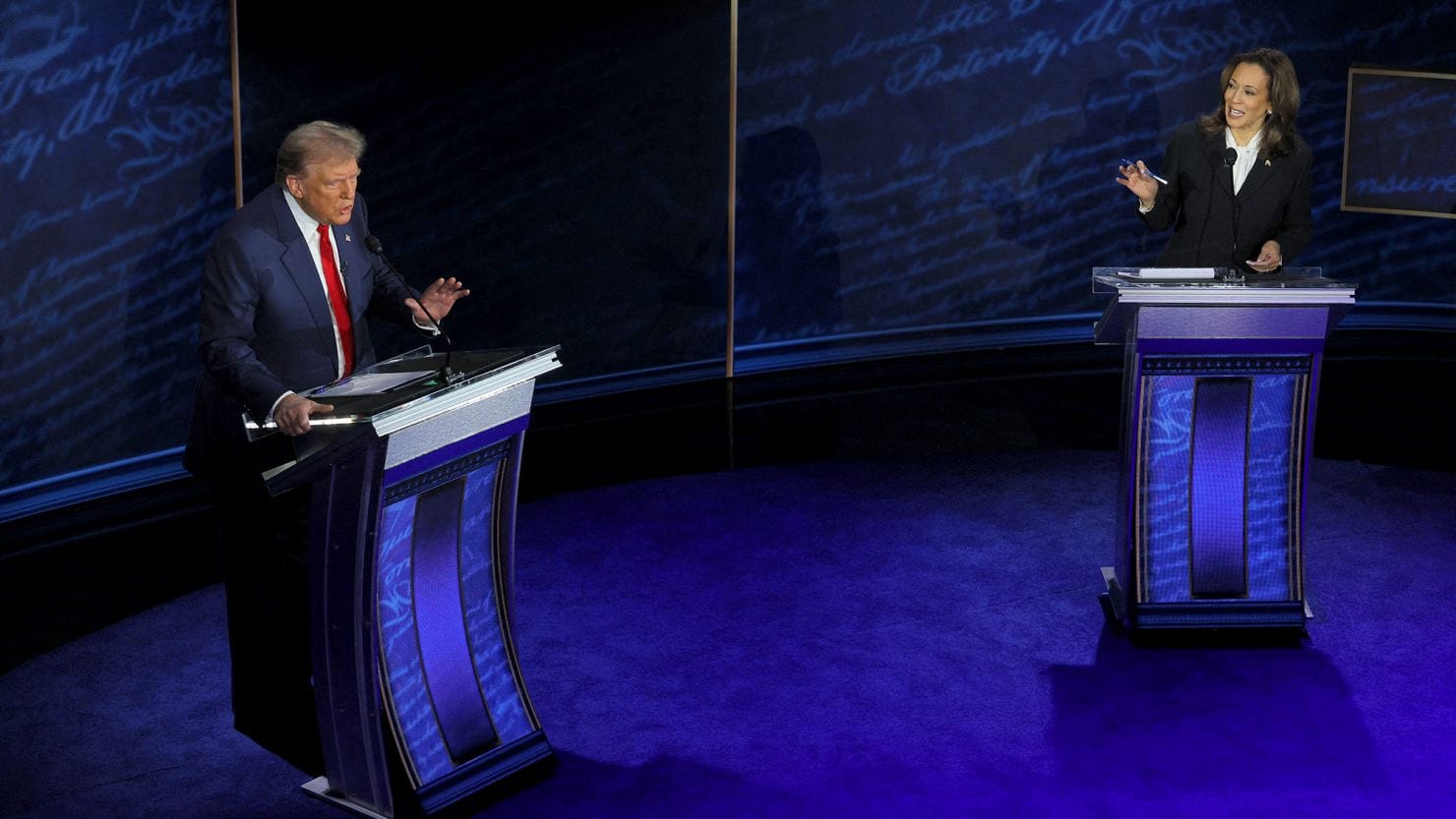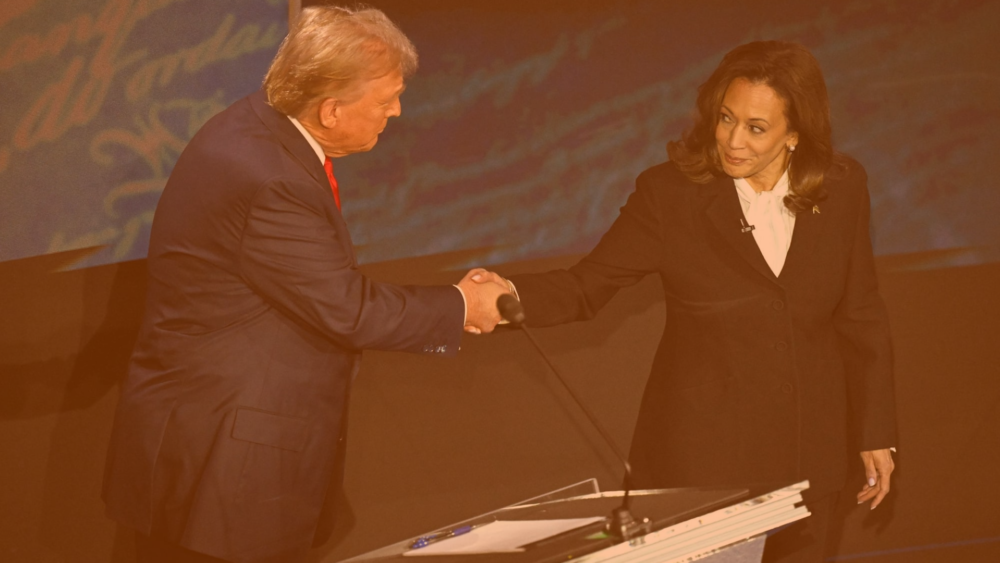Look, I’m not American. I can’t vote in their upcoming presidential election. I can’t even meaningfully support either side: in 2008 I donated to the Obama campaign, and they refunded me with a cheque in the post a year later (apparently due to campaign financing rules).
I’m also no fan of either of the candidates. On two key issues I care about – climate change and Israel-Gaza – their positions are equally terrible.
But the United States‘ influence on the world is so outsized and far-reaching and often pernicious, that any activist would be silly to ignore it. And hey, the debate offers a high-stakes masterclass in do’s and don’ts of political communications. So here’s my take on it.
What I saw surprised me. Kamala Harris started off shaky – nervous, dry-mouthed, hesitant. But she grew into her role. And while she’s no Obama, her later performance was, dare I say it, impressive.
Donald Trump, on the other hand, didn’t adapt! He seemed unprepared. Or rather, prepared only to roll out his usual campaign points: attack his opponent’s record, burnish his own, paint a bleak picture. It was the classic strongman pitch: the world’s a mess and I’m the guy to fix it.
The real reason Harris got the better of Trump though, was down to a smart tactical move on her part.

Let me back up. Independent, undecided voters were the real audience here, as much analysis suggests. And that audience needed to hear plans: ‘here’s what I’m going to do for you and how.’ (Yes, there needed to be some zingers and entertainment mixed in – debates are a cage-match, a political sporting event. But still, plans!)
So, a path for Harris to dominate the debate was to keep Trump eating up his speaking time, defending his honour and record rather than talking about substance. To get him fixating on the past instead of the future. And this is what she did, with a series of lines designed to goad him, like her claim that “world leaders are laughing at Donald Trump” and that “people start leaving his rallies early out of exhaustion and boredom”.
It was an obvious ploy; it wasn’t particularly well delivered. But it worked. Like a cat chasing a laser pointer, Trump lapsed into defending himself. Plans? What plans? When pushed by the moderator to say what he’d do on healthcare, he provided the guts for a thousand Harris campaign ads by responding weakly: “I have the concepts of a plan.” It was devastating.
Harris had some help though – from Trump. The former president missed the chance to attack Harris on issues where she was exposed. In particular, he could have blasted her vigorous defence of Biden after the last debate – since for a long time the current president hasn’t been in control of his faculties, never mind the country. But Trump mentioned it only in passing, and it didn’t land.
Sure, Harris wasn’t always on good form. There were some lies, some talking points that homework-shy Democrat speechwriters still resurrect. She claimed Trump failed to condemn white supremacists in comments he made in 2017 (he actually did), that police died during the January 6 riots (they didn’t), and that Trump would implement the right-wing Project 2025 governing blueprint (he’s disavowed it repeatedly). But even when fibbing, Harris got away with it; moderators were happy to fact-check Trump, but much less so her. (There’s something to be said for agreeing to a debate on a friendly TV network.)
Also, she wasn’t great visually. Most of the debate was split-screen, and her reactions were stylised and over-rehearsed, her scowls and scolding expressions to Trump’s responses seemed too harsh to seem real. But Trump didn’t do well here either. He spent much of his screen time staring down or into the camera, hunched with a fixed frown, rarely glancing at Harris. Which made him look old, and her dynamic by comparison.
In summary: Whatever you think of the views of these two candidates, this was a win for Harris. She cornered Trump tactically, successfully profiling herself as the candidate of hope, ideas, and progress. While he relied on personal attacks and a bleak view of the country’s future. A lifter-upper versus a put-downer. Trump lost this one, and betting markets agree.
Post-debate, two things worth noting:
- Lots of Republican voices on social media are criticising the moderation from ABC as biased. Whether or not you think they’re right, this usually signals that their candidate performed badly.
- Harris’ campaign isn’t gloating; they just sent out a newsletter emphasising that debates don’t win elections, and calling for supporters to refocus on the campaign. This was a pitch-perfect follow-up from a campaign that, for now at least, is bringing its A-game.
This article was first published on the Subvrt activism newsletter
Do you want to be informed of DiEM25's actions? Sign up here















